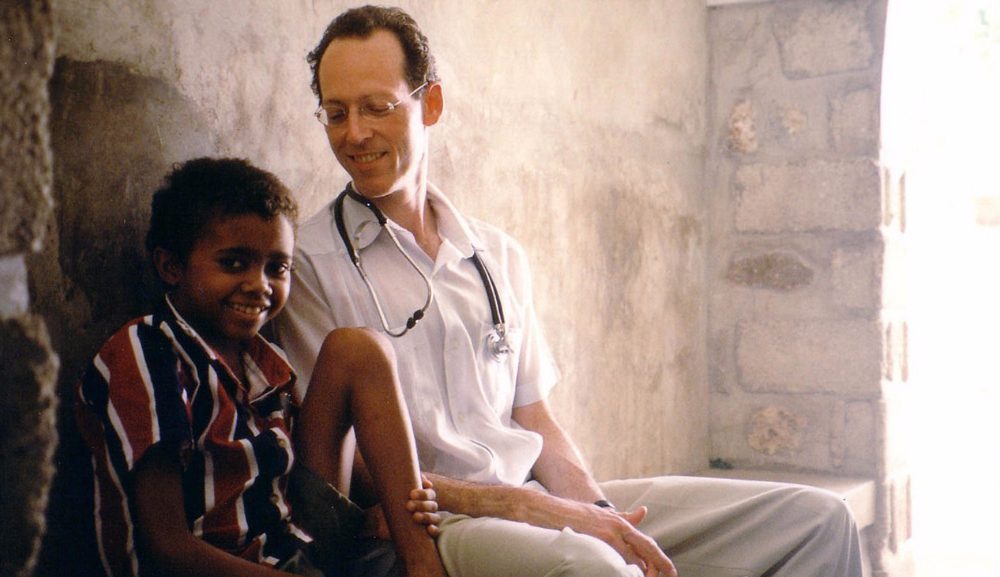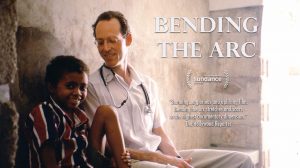Bending the Arc

Health care in the developing world has always been one of those hot button topics that tends to polarise people in their opinions. The ideal that everyone should have access to affordable, comprehensive health care is often stunted by conservative questions of cost and sustainability of such models. Bending the Arc is the remarkable story of how three aid workers accomplished the once impossible and created a sustainable model to bring healthcare to poor, remote corners of the world.
It was 1983 when Dr Paul Farmer, still a med-school-hopeful at the time, first travelled to Haiti and began working with the people there. The country at the time had next to no health care system and diseases that were easily cured with proper medication regiments were basically death sentences. It was then that Famer met fellow community aid worker and activist Ophelia Dahl, and later Dr Jim Yong Kim, and the group began work on a health care system that would change the lives of countless people. Beginning in Haiti and then expanding to Peru and Rwanda and combating diseases such as tuberculosis, HIV/AIDS, ebola and cancer the community health model that they developed focused on training friends and neighbours to administer care, an advanced buddy-system if you will. They scraped together resources to build and stock clinics but their most controversial battles were fought on the world’s political stage.
For a doctor, the answer is simple: health care is a basic human right. It doesn’t matter if someone is rich or poor, everyone should have access to the medications and care they need to live regardless of socioeconomic status. Directors Kief Davidson and Pedro Kos are wise to frame this discussion as a fight for equality and justice. The most impactful element of Bending the Arc is watching the tremendous uphill battle Farmer, Kim, and Dahl undertook to fight for this equality of care. The ethical dilemma that they throw into the ring of politics, that they then bolster with actual results of cured patients, is inspiring to see play out. At a time when everyone else was complacent to let the poor suffer and die because it was thought to be too expensive and too impractical to implement treatment methods, these activists treated patients anyway and proved that it was possible and that it was worth it to bring health care to poor communities around the world. This is the great success of this film.
However, although this documentary is heartwarming and a remarkable story in it’s own regard, one can’t help but feel like it’s nothing new. It’s a beautiful appeal to the pathos and ethos of the viewer and definitely invokes a strong sense of compassion for the ongoing fight for accessible, affordable health care. But the combination of archival footage and interviews with key figures makes for an informative but not the most surprising or engaging film. Unfortunately Bending the Arc lacks the sort of style and direction that make OK docs extraordinary. Despite being a generally interesting story, one doesn’t necessarily walk away with a new perspective or feeling called into action to make change and that’s a shame for such a relevant and important topic.
Zoe Tamara
Bending the Arc is released nationwide on 18th August 2017.

























Facebook
Twitter
Instagram
YouTube
RSS